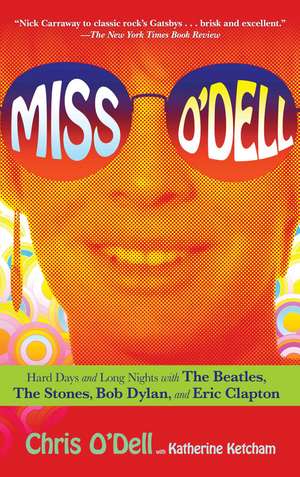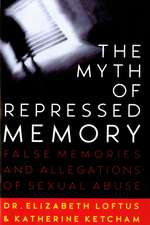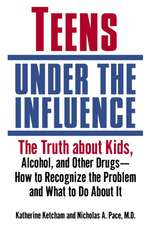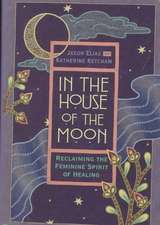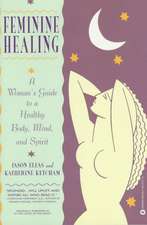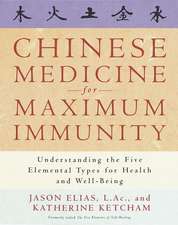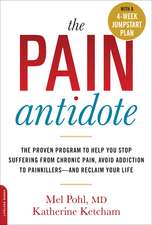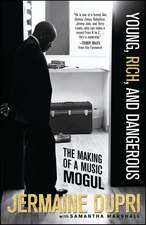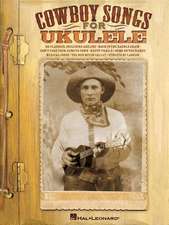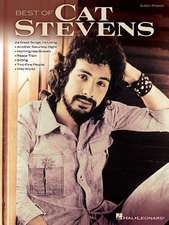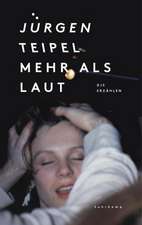Miss O'Dell: Hard Days and Long Nights with The Beatles, The Stones, Bob Dylan and Eric Clapton
Autor Chris O'Dell Cu Katherine Ketchamen Limba Engleză Paperback – 19 aug 2010
During all those years, drugs were everywhere. She smoked marijuana, popped black bombers, dropped LSD, and drank endless Scotch and cokes (the Beatles' favourite drink). Getting deep into cocaine while touring with the Stones by the end of the tour in New York she was shooting up the drug. Now sixty years old and with a full life she reflects back on her past.
Preț: 62.10 lei
Nou
11.88€ • 12.41$ • 9.83£
Carte disponibilă
Livrare economică 14-26 martie
Specificații
ISBN-10: 1416590943
Pagini: 416
Ilustrații: b-w photo insert
Dimensiuni: 149 x 230 x 28 mm
Greutate: 0.45 kg
Editura: ATRIA
Colecția Atria Books
Notă biografică
Extras
1
Derek Taylor
February–March 1968
I was sprawled out on the sofa in my Hollywood apartment, wearing jeans and a sweatshirt, watching a game show on the black-and-white, thirteen-inch TV, smoking a joint, and getting really annoyed. My date was almost two hours late. I was alone in the apartment because my roommates, both high school friends from Tucson, were out partying. Where the hell was he?
When the phone finally rang around 10:00 p.m., I didn’t try to hide the fact that I was upset.
“Chris! It’s Allan.” He sounded a little out of breath, and from the background noise I guessed he was in a restaurant somewhere.
“Allan, where have you been?” I said. “You said you’d be here two hours ago.”
“I know, I’m sorry, but look, I’m at the La Brea Inn with some friends and there’s someone here you have to meet.” Allan was talking fast. “His name is Derek Taylor, he used to work for the Beatles, he’s doing publicity for A&M Records, and, Chris, you just have to come down here and meet him.”
“I don’t want to go out. I thought you were coming over here.” I was still annoyed with Allan, and I didn’t believe that this guy Derek knew the Beatles. The Beatles! Who knew anyone who worked for the Beatles? He was probably just one of those people hanging out on the periphery who once met someone who once knew someone who claimed they were once best friends with someone who worked for the Beatles.
“Chris, you’ll really like him.” Allan sounded pretty excited, actually. He was almost pleading with me. “Just jump in your car and come over. Come on!”
I was torn—should I go or stay? I remember staring at the lamp on the side table, almost as if I thought it might tell me what to do. Allan seemed sincere about wanting me to join him, and whoever Derek was, he had certainly impressed Allan. I’d never seen him act this way about anyone before. Oh, what the heck, whatever happened, it would be better than sitting in my apartment all alone feeling sorry for myself.
“Okay,” I said. “I’ll be there in half an hour or so.”
“Hurry. I’ll be watching for you,” he said.
I changed into my yellow-striped bell-bottom jeans and white top with puffy sleeves (Cher in her “Sonny and” days was my fashion idol), touched up my makeup, and drove to the La Brea Inn on Sunset Boulevard and North La Brea Avenue. I loved my new beige Mustang, which I’d bought in Tucson for two thousand dollars. My father co-signed the loan. I’ll never forget that feeling of driving off the lot in my new car, the windows down, the hot desert air blowing through my hair. Oh, that indescribable feeling of total freedom!
The drive took about fifteen minutes. The streetlights on Sunset Boulevard were so bright it might as well have been day, and under their glare I began to feel exposed and insecure. Maybe I should have stayed home. Really, all I’d wanted to do that night was hang out with Allan in my apartment, two friends talking, no pressure, no stress. I liked it that way. I always tried to take things lightly, not to invest too much, although I have to admit that even at twenty I fantasized a lot about finding the right guy and a relationship that would last a lifetime. Maybe this is the one, I’d think when I first became interested in someone. But when the relationship ended, even though it would hurt like hell, I moved on pretty quickly. I went with the flow—one of my great strengths that would also prove, at times in my life, to be a significant weakness.
I parked my car in the crowded lot and took a few deep breaths, trying to force the anxious thoughts out of my mind and put a confident smile on my face. I was always uncomfortable walking into a room where the party was going strong and everyone else seemed to know one another. Never knowing what to expect, I feared I wouldn’t fit in, that no one would talk to me, and if they did, I’d say something stupid or inappropriate. So I had learned to put on a “face,” smiling confidently, walking with a firm stride, my back straight and head held high while my insides were trembling, whether from fear or excitement I never quite knew.
The restaurant was dimly lit, and a massive two-sided fireplace in the center of the room separated the bar from the dining area. A thin fog of cigarette smoke drifted toward the high ceiling, a pleasant hum of conversation filled the room, and the crackling fire put a pleasant glow over everything. As my eyes adjusted to the light, I saw Allan waving to me from a table by the fireplace.
“Hey, Chris, glad you made it,” he said, giving me a hug and introducing me, first, to the two women at the table—a writer named Eve and her friend, whose name I immediately forgot. I wasn’t paying attention to them anyway because I couldn’t take my eyes off the handsome man who had pushed back his chair, waiting for Allan to introduce us. He was so—well—so English, dressed in a navy blazer with a silk scarf tied loosely around his neck and tucked into an open-collared shirt, a drink in one hand and a cigarette in the other. A well-groomed mustache lined his upper lip, his long hair, layered to look somewhat unkempt, curled up at the ends, and his eyes drooped in a gentle, lazy way. Just like Paul McCartney’s eyes, I thought.
“Chris O’Dell, meet Derek Taylor,” Allan said.
“Lovely to meet you, Chris,” Derek said, standing up and taking my hand in his, all the while looking deep into my eyes. At that moment I felt like the most important person in the world, as if no one else in the room mattered to him. Dashing—that was the word for him. He reminded me of the romantic, swashbuckling Errol Flynn.
I sat down next to Allan and tried not to look like I felt—out of my element. This was clearly the “in” crowd. Eve was talking about her latest writing project, and from the sound of it, she was one of those almost-famous people who really did know a lot of famous people. Dressed in jeans and a flowing silk blouse, with rings on almost every finger and a huge gaudy necklace that was probably worth a fortune, she held her head back at a steep angle, eyes slightly narrowed, looking down the steep cliff of her cheek at me. I’m sure she sensed my insecurity and perhaps that raised the angle of her chin a bit higher.
“What’s your sign?” she asked me, her eyes intent and unsmiling.
“Sign?” I had no idea what she was talking about.
“Astrological,” she said, raising her chin a little higher.
I smiled, trying to be friendly. “Pisces,” I said. And with that, she turned away and didn’t speak another word to me for the rest of the evening. Like everyone else, she focused her attention on Derek, and who could blame her? I loved the way his eyebrow lifted in an amused sort of way and how his undulating, often indecipherable English accent cloaked what I would come to know as a Liverpudlian wit, which says one thing and means another, poking fun without being blatantly cruel about it. Derek would tell his stories, spinning his magic with perfectly chosen words, drawing you into his spell, and making you feel as if there were no better place to be in all the world than sitting right next to him. We drank and talked, and after three or four glasses of wine, I was feeling much better about everything, especially when Eve and her friend stood up to leave.
“Deadlines,” Eve explained, with a wink at Derek.
Derek, Allan, and I drew our chairs closer together, ordered more drinks, and stayed until the restaurant closed. Something clicked that night between Derek and me. He told me later that he was attracted to the fact that I seemed so unaffected by the Hollywood scene and so innocent about the world. I’m not sure how innocent I was—I’d been in LA for almost two years, and I’d already had several disastrous love affairs, I was drinking too much, smoking too much pot, and discovering the joys of amphetamines. But perhaps it was a sort of youthful naïveté that endeared me to Derek, and later to the Beatles, the Stones, and all the other rock stars, along with my willingness to withdraw into the shadows and let others take center stage.
I was always the listener, the eager helper who wanted more than anything to be liked and accepted, the friend who was content to do what she could to make other people happy. Ever since I was a little girl growing up in Keota, Oklahoma, I’d learned how to put other people’s needs above my own. The memories are so strong that I can still picture myself, a six-year-old girl with wavy blond hair and blue eyes who wore plaid dresses with white collars and patent leather Mary Janes with anklets. I’d skip down the sidewalk of the main street, past the sheriff’s office, past the winos sitting on the bench in front of Burris’s grocery story, past the tiny houses where I waved at people sitting on their porches or working in their yards until I came to my favorite spot, an old oak tree with spreading limbs and acres of grass all around.
Sitting under the leafy branches, my legs splayed out in front of me, I spent hours searching for four-leaf clovers. I had a lot of time after school to explore because my younger sister, Vicki, was sick again with chronic pneumonia—eventually the doctors would remove part of her right lung—and my mother was staying with her in the closest hospital, thirty miles away, across the Oklahoma border in Fort Smith, Arkansas. My father was always busy at school, teaching or coaching, and I had afternoons to myself. I was used to being alone. Loneliness was part of me, as familiar as taking a breath. The message I had internalized was to take care of myself, do the best I could, and no matter what the circumstances, keep a big smile on my face.
I also learned early on that I was not the center of the universe, but that knowledge did not stop me from pursuing my dreams. I never stopped looking for the four-leaf clover that would change my life. It was waiting out there for me, and when I couldn’t find it in the shade of the massive oak, I skipped along the dirt road and looked for it elsewhere. I never stopped dreaming that I would discover something precious and beautiful, mine alone to keep and treasure.
After we closed down the La Brea Inn, Derek invited Allan and me to continue the party at his rented home in Laurel Canyon. We sat in the living room, listening, as he rolled a joint and told us stories about how he’d once worked for a local paper in Liverpool and left that job to work as the personal assistant to the Beatles’ manager Brian Epstein. After touring with the Beatles in 1964, Derek moved to Hollywood to become a publicist for Paul Revere and the Raiders and, later, the Beach Boys, Captain Beefheart, the Byrds, Tiny Tim, and the Doors. But now, he said as he passed the joint around, he was preparing to leave LA in a few weeks to start his new job in London as press officer for Apple Corps Limited, the Beatles’ new company. His wife and four children (soon to be five and eventually six) were already settled in their new home in the country outside London.
That was the strongest pot I’d ever had, some Hawaiian stuff that I think Derek called “Icebox.” We listened to the Bonzo Dog Doo Dah Band, playing the Intro and Outro track over and over again, which cracked us up. Derek continued to regale us with stories about his life with the Beatles, and I sat there stoned out of my mind, thinking, Wow, so this is how the in-crowd lives in Hollywood. I felt as if I had stepped into a whole new world. Which, of course, I had.
I look back at that magical evening with one question in mind: What if I had stayed home? We all have those critical junctures in our lives, when we make a seemingly trivial decision that radically alters the direction of our lives. It takes only a second, really, and then everything changes.
When I met Derek I was twenty, a high school graduate with a pleasant personality and an eagerness to please. I didn’t have any great ambitions, although I had moved to Los Angeles to get away from Tucson with the dream of something better happening to me. That was the choice—stay in Arizona and go to college (I wanted to major in drama), or leave Tucson with dreams but no plans and see where life took me. But when I got to LA, I realized I was just a small-town girl in a big city—lonely, directionless, insecure, and self-doubting, always waiting, waiting, waiting for a new experience or adventure to come along. I was free to be whatever I wanted to become, but I had no idea what that was.
That night in the La Brea Inn changed everything. I have lived such a storied life, filled with wild adventures and unimaginable opportunities, surrounded by rock stars and celebrities, living in times that were at once magical, thrilling, bewildering, and terrifying. Despite all the craziness and confusion, the bad (some would say stupid) decisions and the good (I would say lucky) choices, the close friendships and the bitter betrayals, the drug highs and the inevitable lows, this is my life and I wouldn’t change one tiny piece of it for fear of losing it all.
But back then I had no idea that one chance meeting would completely alter the direction of my life.
“Chris, dear, would you like to join me and some friends for dinner at the La Brea Inn?” I just adored Derek’s voice with its soft, sweet tone and the warmth that seemed to wrap around each word. I had to admit it—even though I struggled with the fact that Derek was fourteen years older than me (and married, with four children)—I had a huge crush on him. He was attracted to me, too, but the fact that he was married, with children, stopped anything from happening between us. His conscience got in the way, which was okay with me because I came to see him as more of a father figure than a boyfriend. A boyfriend could always dump me, but a father figure would protect me and stand up for me no matter what.
“I’d love to!” I said. I was sitting at my desk at Ted Randal Enterprises struggling with typing up the latest tip sheet on the mimeograph paper. Ted programmed radio stations in the US and Australia, picking the records he thought would be hits and creating playlists for the stations. I hated that mimeograph paper because it was so unforgiving of typos and so incredibly messy, the blue ink getting all over my hands every time I touched it.
Derek didn’t own a car—he didn’t even know how to drive, which I found sort of strange—and for the next three weeks I was his driver, chauffeuring him around Los Angeles as he tied up loose ends and prepared to move back to London. I drove him to television and radio interviews, sat in on recording sessions, accompanied him to meetings with lawyers and record producers, and joined him for lunches, dinners, and drinks with people like folksinger Phil Ochs, screenwriter Carl Gottlieb, film producer Fred Roos, and actress Teri Garr.
It was all such a frenetic, fantastic whirlwind, with one event following right on the heels of another, that I didn’t have time to go to work. Or so I told myself. For the first few days I phoned in sick, but after a while I didn’t even bother to call. All I wanted to do was be with Derek for the few short weeks before he left. When I finally handed in my notice, Ted Randal was clearly irritated with me, but truthfully I didn’t care—I was young and carefree, Derek was paying for all my gasoline and meals, and he was introducing me to so many people in the record and entertainment industries that I figured I’d find another job without a lot of trouble. In the meantime, I was having too much fun to worry about much of anything. I was living in the moment, and the moment was all about Derek.
One evening, just a few days before Derek left for London, was particularly memorable. I was in my apartment, getting ready to meet Derek at A&M Records, when he called.
“Chris, dear, tonight we’re having dinner with Peter Asher,” Derek said.
Peter Asher! I struggled to contain my excitement. Peter Asher, formerly of Peter and Gordon, the British duo! Peter Asher, brother of Jane Asher, Paul McCartney’s girlfriend! Peter Asher! I thought. Wow!
“Okay,” I said nonchalantly.
I remember thinking how well-mannered and quintessentially English Peter was as he dabbed at the corners of his mouth with his white linen napkin and talked to Derek about this new business venture called Apple. He had much redder hair than I had imagined from his photographs, and he wore black Buddy Holly–type glasses that might have looked goofy on someone else but made him look cute in a refined sort of way, if that makes any sense at all. Prim and proper and not one for small talk, Peter focused most of his attention on Derek. I assumed he was shy because he didn’t look at me very often, even though Derek kept trying to include me in the conversation. When Peter did turn my way, he swiveled his whole body around at the same time he turned his head, which seemed to me a very polite gesture and a way of giving me his full attention.
“Yes, my dear,” he said to me at one point, and I liked that, having Peter Asher call me “dear.” He had a really sweet smile. I sipped my wine and listened politely as the two men talked about the Beatles’ grand plans for Apple, including separate divisions for publishing, film, electronics, and even an Apple boutique. Peter was already working as head of A&R, the artists and repertoire division of Apple Records.
After we dropped Peter at the airport for his flight to London, Derek said the most amazing thing.
“You should think about coming to London, Chris.”
“London?” I wasn’t sure what he meant. Was he inviting me to come visit him?
“Apple is going to be huge,” Derek said. “It would be a very good time to appear, you know.”
I laughed, delighted by the idea of “appearing” at Apple. Would I just walk in and ask for a job? Was Derek serious? It seemed so preposterous. I didn’t have any savings, and I didn’t know a soul in London except for Derek and now Peter. I couldn’t just pack up and move to London without a job or a place to live—it was a fabulous fantasy, a scene that I could play out in my mind or in front of my mirror, picturing myself having tea with Pattie Harrison or chatting with George, Ringo, Paul, or John in a real English pub. And when I listened to Derek, sometimes I even believed the dream might come true.
Recenzii
"One of the most rollicking and enjoyable classic rock memoirs of recent years…don’t mistakenly file this book under Groupie Lit." --Houston Press
Descriere
Chris O'Dell has packed a lot in a small amount of time and is probably surprised that she made as far as she has, considering the life she have lived. Hanging around with the Beatles, Eric Clapton and the Rolling Stones and managing tours for George Harrison, Bob Dylan, Santana, Earth, Wind & Fire and Crosby, Stills, Nash and Young. In the early 1980s she worked with Led Zeppelin, Phil Collins, Fleetwood Mac, Queen, The Grateful Dead, and The Band.
During all those years, drugs were everywhere. She smoked marijuana, popped black bombers, dropped LSD, and drank endless Scotch and cokes (the Beatles' favourite drink). Getting deep into cocaine while touring with the Stones by the end of the tour in New York she was shooting up the drug. Now sixty years old and with a full life she reflects back on her past.
